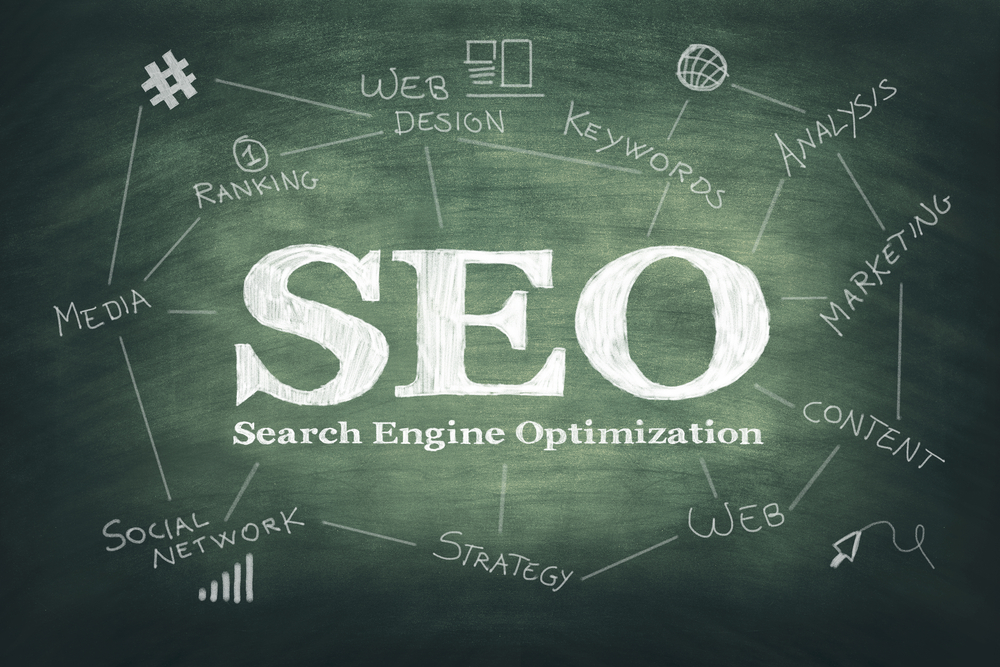
Boost Your Website's Rankings: Effective SEO and Link Building Tips

In today's digital age, having a strong online presence is crucial for the success of any business. Whether you're running an e-commerce store, a blog, or a corporate website, it's essential to optimize your site for search engines to ensure maximum visibility. That's where Search Engine Optimization (SEO) and link building come into play. By implementing these effective strategies, you can improve your website's rankings and attract more organic traffic. In this article, we'll dive deep into the world of SEO and share valuable tips on how to boost your website's rankings.
Understanding SEO (search engine optimization) and Its Importance
SEO/SEM refers to the practice of optimizing your website to rank higher in search engine results pages (SERPs). When someone conducts a search on a search engine like Google, the goal is to appear as high up in the results as possible. Why? Because the higher your website ranks, the more likely it is to be clicked on by users. This means the potential for increased traffic, conversions, and ultimately, revenue.
There are several key components to SEO (or SEM) , including keyword research, on-page optimization, technical optimization, and link building. While it may seem overwhelming at first, implementing these strategies can significantly improve your website's visibility and rankings.
Effective SEM/SEO Strategies to Boost Your Website's Rankings:
1. Conduct Thorough Keyword Research:
Keyword research is the foundation of any successful SEO campaign. It involves identifying the keywords and phrases that users are searching for in relation to your business or niche. By targeting the right keywords, you can drive targeted traffic to your website. Utilize tools like Google AdWords Keyword Planner or Moz Keyword Explorer to find relevant keywords with a good balance of search volume and competition.
2. Optimize On-Page Elements:
On-page optimization involves optimizing various elements on your website to improve its visibility to search engines. This includes optimizing meta tags, title tags, headers, URLs, and incorporating keywords naturally throughout your content. Take the time to craft compelling meta descriptions that entice users to click on your link when it appears in the search results.
3. Create High-Quality Content:
Quality content is a key driver of SEO success. Search engines strive to provide users with the most relevant and valuable content for their search queries. By creating informative, engaging, and shareable content, you increase the likelihood of getting backlinks from other websites, which signals to search engines that your website is reputable. Remember to optimize your content with appropriate headers, bullet points, and internal links to keep readers engaged and encourage them to explore your site further.
4. Build Quality Backlinks:
One of the most crucial aspects of SEO is link building. Backlinks are links from other websites that point to your site. Search engines like Google view backlinks as endorsements of your website's credibility and authority. However, not all backlinks are equal. Quality trumps quantity here. Aim for obtaining backlinks from reputable websites in your industry or niche. This can be achieved through guest blogging, creating shareable content, reaching out to influencers, or utilizing online directories.
5. Optimize for Mobile:
With the majority of internet users accessing websites through mobile devices, optimizing your website for mobile is no longer optional. Search engines have also recognized the importance of mobile-friendly websites, and they now prioritize mobile-responsive websites in their rankings. Ensure your website is mobile-friendly to enhance user experience and improve your search engine rankings.
Frequently Asked Questions (FAQ):
1. What is the importance of SEO for my website?
SEO is essential for your website because it helps improve its visibility and rankings on search engine results pages. This leads to increased organic traffic, higher conversions, and ultimately, more revenue for your business.
2. How does link building benefit my website's SEO?
Link building signals to search engines that your website is reputable and worthy of ranking higher. Quality backlinks from authoritative websites can significantly improve your website's visibility and rankings.
3. How often should I update my website's content?
Regularly updating your website's content is important for both SEO and user experience. Aim to publish fresh, relevant content on a consistent basis to attract search engine crawlers and keep your audience engaged.
4. Are meta tags still important for SEO?
Yes, meta tags, including meta descriptions and title tags, are still relevant for SEO. Meta descriptions provide a brief summary of your webpage and can influence click-through rates from search engine results.
5. Is social media important for SEO?
While social media signals do not directly impact search engine rankings, having a strong presence on social media can indirectly benefit your SEO efforts. Engaging with your audience through social media can help increase brand awareness, drive traffic to your website, and potentially attract valuable backlinks.
In conclusion, implementing effective SEO and link building strategies is crucial for boosting your website's rankings. By conducting thorough keyword research, optimizing on-page elements, creating high-quality content, building quality backlinks, and optimizing for mobile, you can improve your website's visibility in search engine results and attract more organic traffic. Remember, Rome wasn't built in a day, so be patient and consistent with your SEO efforts. Start implementing these tips today, and watch your website climb the ranks of search engine results.
Other useful resources
- https://www.seoguru24.com/services/seo/
- https://simple.wikipedia.org/wiki/Search_engine_optimization
- https://www.seoguru24.com/services/link-building/
- https://en.wikipedia.org/wiki/Search_engine_marketing